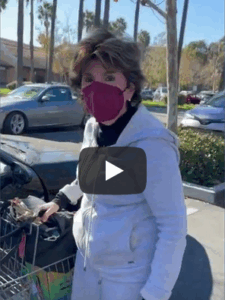**The Menendez brothers, having spent over 30 years in prison for the 1989 double murder of their parents, faced separate parole hearings this week where their behavior behind bars played a crucial role in the denial of their freedom.**
**Menendez Brothers Denied Parole: Insights from Recent Hearings**

**Menendez Brothers Denied Parole: Insights from Recent Hearings**
**Examining the reasons behind the parole denial of Erik and Lyle Menendez after decades of incarceration for their parents' murder.**
Erik and Lyle Menendez have recently been denied parole following their respective hearings in California, bringing renewed focus to their complex case that dates back to 1989 when they killed their wealthy parents. The brothers asserted they acted in self-defense, yet their decades-long imprisonment reveals a more nuanced reality.
Erik, aged 54, appeared first before the parole board on Thursday, followed by his 57-year-old brother Lyle the next day. Both hearings took place remotely and provided significant insights into their life in prison, which influenced the boards' decisions against their release.
For Erik, the denial was not primarily about the murders but rather his conduct while incarcerated. Parole commissioner Robert Barton specifically called out Erik's involvement in fights, drug use, and participation in a tax-fraud scam connected to gang activity. Furthermore, Erik admitted to possessing contraband items, including materials for making wine and art supplies, suggesting a disregard for prison rules, which Barton indicated reflected Erik's lack of self-awareness.
Conversely, during Lyle's hearing, commissioner Julie Garland noted his expressions of remorse and personal growth while in prison. Despite these positive aspects, she highlighted that he still exhibited traits indicative of an anti-social personality, including deception and rule-breaking behaviors. Particularly concerning to the boards was the brothers' repeated contraband use, notably their illegal possession of mobile phones — a violation they both admitted to, underscoring their struggle with compliance in an institutional setting.
Lyle attempted to justify his actions, explaining that while he had access to a tablet, he preferred mobile phones for privacy. He, too, expressed that he had not been a perfect prisoner, acknowledging his flaws while emphasizing his efforts to assist vulnerable inmates.
Both brothers reflected on their past actions, conveying deep remorse for the trauma inflicted on their family. Erik expressed regret, stating "I am so unimaginably sorry for what I have put them through," while Lyle, acknowledged as the more dominant sibling, echoed similar sentiments of sorrow for the consequences of their actions.
Support for the brothers was strong during the hearings, with family members publicly voicing forgiveness and endorsing their release. Their aunt, Teresita Menendez-Baralt, even tearfully expressed her wish to embrace Erik, while Lyle's cousin, Eileen Cano, highlighted Lyle's achievements despite the challenges of prison life, asserting that he would not pose a risk to society, with family ready to hold him accountable.
While the support from family was evident, commissioner Barton concluded that love and forgiveness from relatives do not guarantee suitability for parole. The hearings spotlight the voluminous complexities surrounding the case of the Menendez brothers, who continue to grapple with the repercussions of their past in a system that remains skeptical of their reform.


















